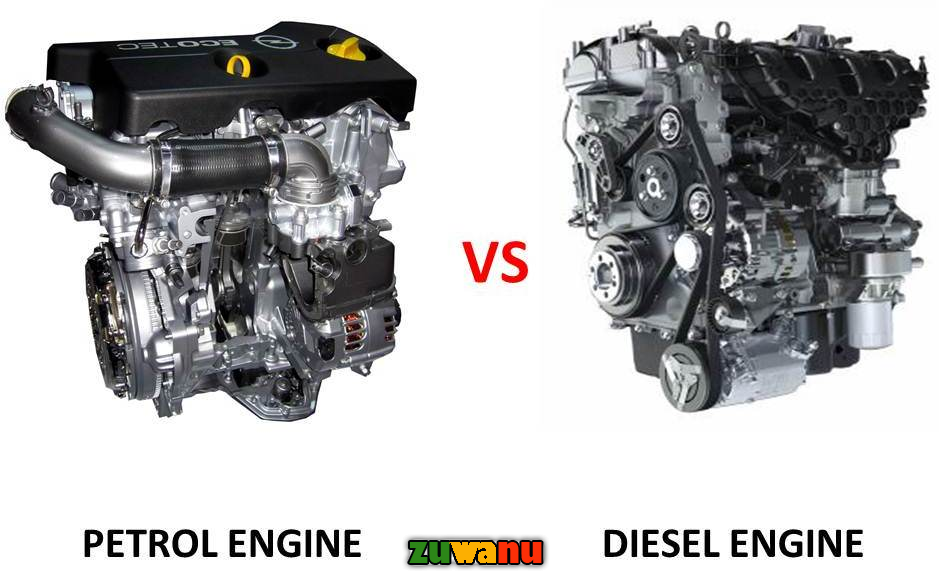Diesel Engine vs. Petrol Engine: Pros and Cons for Buyers

Introduction to Diesel Engine and Petrol Engine
When it comes to choosing an engine for your vehicle, you may have come across two major types of engines – the diesel engine and the petrol engine. Diesel and petrol engines are two different types of internal combustion engines, with different designs, fuel systems, and characteristics. While both engines have their pros and cons, it is important to understand the differences between them in order to make an informed decision when choosing an engine for your vehicle. In this article, we will discuss the differences between diesel and petrol engines, their pros and cons, and help you decide which one is the best option for you.

Diesel Engine
A diesel engine is an internal combustion engine that uses diesel fuel to produce energy. Unlike a petrol engine, diesel engines do not use spark plugs to ignite the fuel. Instead, they use compressed air to heat the fuel until it ignites. This process is called compression ignition. Diesel engines are typically used in trucks, buses, and other heavy-duty vehicles, but they are also used in passenger cars.
Pros of Diesel Engines
- Fuel Efficiency: Diesel engines are known for their high fuel efficiency. They can provide up to 30% better fuel economy than petrol engines.
- Low-end Torque: Diesel engines produce a high amount of torque at low speeds. This makes them ideal for vehicles that need to tow heavy loads or climb steep hills.
- Durability: Diesel engines are known for their durability and longevity. They have fewer moving parts than petrol engines, which means there are fewer things that can break or wear out.
- Longer Service Intervals: Diesel engines require less frequent oil changes than petrol engines. This can save you money on maintenance costs.
- Better Resale Value: Because of their durability and longevity, diesel vehicles tend to have better resale value than petrol vehicles.
Cons of Diesel Engines
- Higher Initial Cost: Diesel engines are typically more expensive than petrol engines, which can make them a less attractive option for buyers on a budget.
- Higher Maintenance Costs: While diesel engines require less frequent oil changes, they can be more expensive to maintain overall. Diesel engines may also require more frequent fuel filter changes.
- Noise and Vibration: Diesel engines are known for their noise and vibration. This can be a concern for some drivers who prefer a quiet, smooth ride.
- Emissions: While diesel engines are more fuel efficient than petrol engines, they produce more emissions. This can be a concern for environmentally conscious drivers.
Petrol Engine
A petrol engine is an internal combustion engine that uses petrol (gasoline) as fuel. Petrol engines use spark plugs to ignite the fuel, which creates the energy needed to power the vehicle. Petrol engines are the most common type of engine used in passenger cars.
Pros of Petrol Engines
- Lower Initial Cost: Petrol engines are typically less expensive than diesel engines, which can make them a more attractive option for buyers on a budget.
- Lower Emissions: Petrol engines produce fewer emissions than diesel engines. This can be a concern for environmentally conscious drivers.
- Quieter and Smoother: Petrol engines are known for their quiet and smooth operation. This can provide a more comfortable driving experience for passengers.
- Easier to Start in Cold Weather: Petrol engines are easier to start in cold weather than diesel engines. This can be a concern for drivers who live in colder climates.
Cons of Petrol Engines
- Lower Fuel Efficiency: Petrol engines are less fuel efficient than diesel engines. This means that you may need to refuel more frequently.
- Less Torque: Petrol engines produce less torque than diesel engines. This can make them less suitable for heavy towing or climbing steep hills.
- Shorter Service Intervals: Petrol engines require
- more frequent oil changes than diesel engines. This can increase the cost of maintenance over the life of the vehicle.
- Lower Resale Value: Petrol vehicles typically have a lower resale value than diesel vehicles. This is because they are generally less durable and have a shorter lifespan.
- Which Engine is the Best Option for Buyers?
- Choosing the best engine for your vehicle depends on your individual needs and preferences. Here are some things to consider when deciding between a diesel engine and a petrol engine:
- Fuel Economy: If you are looking for a vehicle with the best fuel economy, a diesel engine may be the better choice. However, if you do not drive long distances frequently, a petrol engine may be sufficient.
- Towing Capacity: If you need to tow heavy loads frequently, a diesel engine may be a better choice due to its higher torque output.
- Initial Cost: If you are on a budget, a petrol engine may be a better choice due to its lower initial cost.
- Environmental Impact: If you are concerned about the environment, a petrol engine may be a better choice due to its lower emissions.
- Maintenance Costs: Diesel engines require less frequent oil changes, but they may be more expensive to maintain overall. Petrol engines require more frequent oil changes, but they may be less expensive to maintain over the life of the vehicle.
- Noise and Vibration: If you prefer a quiet, smooth ride, a petrol engine may be a better choice.
- What Users Should Know for Each Engine?
- If you are considering buying a vehicle with a diesel engine or a petrol engine, here are some things you should know:
- Diesel engines may be louder and more vibration-prone than petrol engines. This may not be an issue for some drivers, but it is important to consider if you prefer a quiet ride.
- Petrol engines may be easier to start in cold weather than diesel engines. If you live in a cold climate, this may be an important consideration.
- Diesel engines may be more suitable for heavy towing or hauling due to their higher torque output. If you need to tow heavy loads frequently, a diesel engine may be a better choice.
- Petrol engines may be more suitable for city driving or shorter trips due to their lower fuel efficiency. If you do not drive long distances frequently, a petrol engine may be sufficient.
- Diesel engines may require special care and maintenance, such as regular use of diesel fuel additives, to prevent issues with the fuel system.
- Petrol engines may require more frequent oil changes than diesel engines. This can increase the cost of maintenance over the life of the vehicle.
how to tell the difference between petrol and diesel
Petrol and diesel are two different types of fuel that are used to power internal combustion engines. Here are some ways to tell the difference between petrol and diesel:
- Fuel Cap: The fuel cap on your vehicle will typically indicate whether it requires petrol or diesel. The label should be clearly visible and will usually be located next to the fuel cap.
- Fuel Gauge: If you are unsure whether your vehicle uses petrol or diesel, you can check the fuel gauge on your dashboard. Diesel fuel is typically more dense than petrol, so a diesel fuel tank will usually be smaller than a petrol fuel tank.
- Fuel Nozzle: The fuel nozzle at a petrol station will be different for petrol and diesel fuel. Diesel fuel nozzles are typically larger and have a thicker spout than petrol fuel nozzles.
- Fuel Smell: Petrol and diesel have different smells, so you may be able to tell which fuel your vehicle uses by the smell of the exhaust. Petrol exhaust typically smells sweet, while diesel exhaust has a stronger, more pungent smell.
- Engine Noise: Petrol and diesel engines sound different, so you may be able to tell which fuel your vehicle uses by the sound of the engine. Petrol engines are generally quieter and smoother than diesel engines, which are known for their distinctive rumbling sound.
It is important to know which type of fuel your vehicle requires in order to avoid damaging the engine. If you are unsure which type of fuel to use, consult your owner’s manual or contact the manufacturer for guidance.
Lexus LX570 2020: A Comprehensive Review of Price, Pros and Cons, and Features
Conclusion
Choosing between a diesel engine and a petrol engine can be a difficult decision. While both engines have their pros and cons, the best engine for you depends on your individual needs and preferences. If you need a vehicle with high torque output for towing or hauling, a diesel engine may be the better choice. If you are on a budget and do not drive long distances frequently, a petrol engine may be sufficient. When making your decision, consider factors such as fuel economy, towing capacity, initial cost, environmental impact, maintenance costs, and noise and vibration levels. By taking the time to consider these factors, you can make an informed decision and choose the engine that is best for you.

